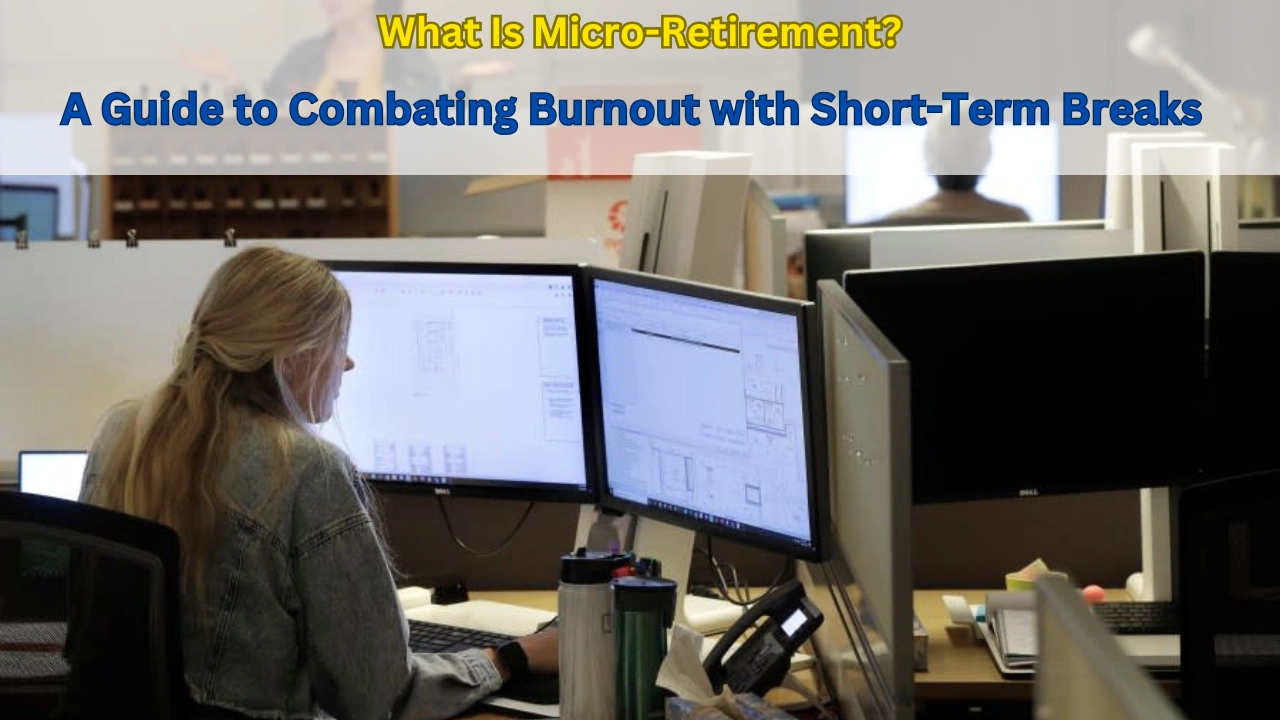The latest workplace trend, “micro-retirement,” has emerged as a reflection of a broader shift in attitudes toward work-life balance, particularly among younger generations. This concept, often likened to a sabbatical, allows workers to take a break from their careers for anywhere from a couple of months to even years. Micro-retirement offers an opportunity to recharge, pursue personal passions, or even explore new side projects.
Jes Osrow, cofounder of HR consultancy The Rise Journey, explains that micro-retirement is a flexible concept, with different meanings for different people. For some, it’s a way to combat workplace burnout, while others view it as an ideal time to embark on a side hustle or personal growth journey. Anaïs Felt, a former tech worker from Silicon Valley, took a micro-retirement after experiencing burnout, citing that it helped her return to work with renewed energy and clarity about her career direction.
The growing interest in micro-retirement can be linked to rising burnout rates. According to a survey conducted by SHRM, 44% of U.S. workers reported feeling burned out at work. Additionally, a Pew Research Center survey in 2023 revealed that younger workers (under 30) are less satisfied with their jobs compared to older employees, with only 44% of those under 30 reporting job satisfaction, compared to 67% of those aged 65 and above.
How to Take a Successful Micro-Retirement
While micro-retirement is becoming increasingly popular, experts suggest that it requires careful planning, particularly from a financial perspective. Michael Lopez, a career coach, emphasizes that one’s economic situation plays a crucial role in whether or not they can take time off work without financial strain.
Tim Toterhi, another career coach, advises those who don’t have access to formal sabbaticals to make long-term plans to ensure they can sustain themselves financially during their break. Essential considerations include how to manage without a paycheck, securing healthcare, and being prepared for unexpected financial emergencies.
Experts recommend setting clear, specific goals to ensure that the break is meaningful. This can help individuals maximize the benefits of their time away from work. Brittany Foley, a 26-year-old consultant, took a micro-retirement to focus on writing a book while working part-time at a restaurant. She had saved a year’s worth of expenses by setting aside a third of her monthly income, including bonuses. For Foley, the decision reflected a desire to prioritize personal fulfillment over the pressures of climbing the corporate ladder.
Foley’s experience underscores a cultural shift, particularly among younger generations like Gen Z, who are increasingly valuing their personal lives and well-being over career advancement. For many, the choice to step away from work is seen as an investment in their overall happiness and mental health.
Preparing to Return to Work
For those considering returning to work after a micro-retirement, both Osrow and Toterhi emphasize the importance of planning for a successful reintegration into the workforce. Osrow suggests that individuals consider what “coming back” means for them—whether it’s acquiring new skills or meeting a specific financial goal. This helps ensure that their time off is intentional and productive.
Career coach Michael Lopez recommends having a plan, but also advises against over-scheduling the break. Too much structure can hinder the natural process of self-discovery and exploration of new passions. While planning is essential, a certain level of flexibility allows for unexpected growth and opportunities.
Foley, who had been on her micro-retirement for over a year, noted that while she had planned her time off, her savings were running low, prompting her to consider a return to a corporate role. This highlights the importance of having a financial cushion, as even well-planned breaks can eventually require a return to work.
Despite the occasional societal judgment, as Foley mentioned, where people may perceive non-corporate work as a setback, micro-retirement allows individuals the freedom to explore passions, pursue new opportunities, or simply recharge.
In conclusion, while micro-retirement can be a valuable tool for combating burnout and fostering personal growth, it requires careful planning—financially and logistically—to ensure that the break is both fulfilling and sustainable. Whether it’s to recharge, explore new paths, or take a step back to reevaluate career goals, micro-retirement offers a flexible solution for those looking to restore balance in their lives.



